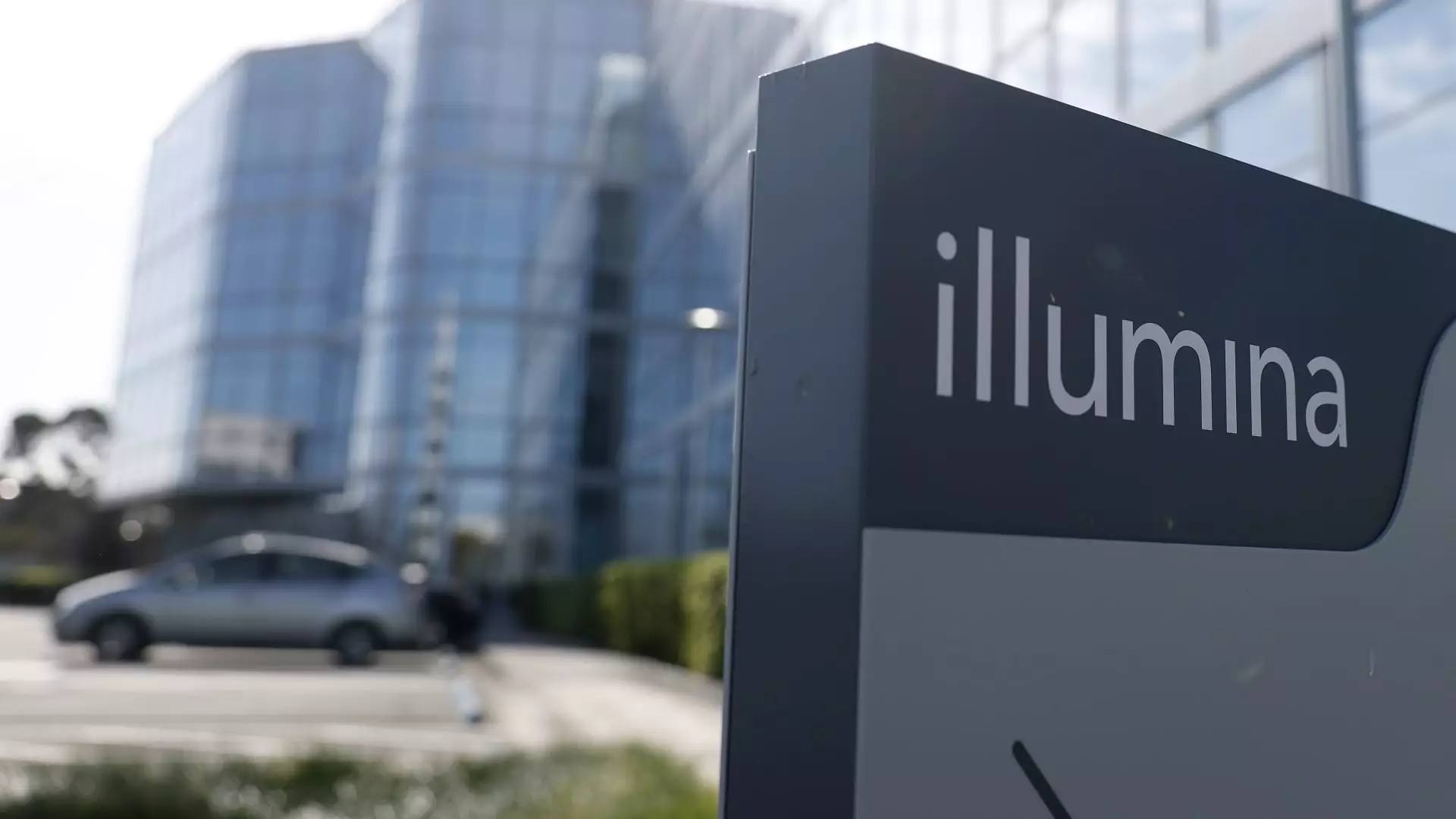When Illumina was riding high in the wake of a global pandemic, one would think it had secured its place at the top of the biotechnology food chain. With sequencing technology achievements and an impressive market cap that once flirted with $70 billion, this company seemed destined for greatness. Fast forward to today, and their valuation has plummeted to a disheartening $12.67 billion. Illumina’s current status serves not just as a cautionary tale but as a glaring example of how quickly fortunes can shift in the volatile world of biotech. Those eager investors basking in the glory of $511 per share in August 2021 are now grappling with the stark reality of trading at a mere $80 per share. It’s a perplexing scenario that raises questions about management decisions and strategic foresight, compelling observers to dissect what went wrong within this once-vibrant enterprise.
The Sepsis of Illumina’s Innovations
Despite being heralded as a leader in DNA sequencing with its unique reversible terminator-based technology, Illumina appears to have failed in recognizing a significant market shift post-COVID-19. The pandemic galvanized demand for genetic testing, making their innovative machines seem indispensable. But as the urgent need for testing subsided, the reality set in—Illumina’s reliance on its previous pandemic-era success became a double-edged sword. Orders dwindled, and with them, so did its revenue. Furthermore, Illumina’s overzealous acquisition strategy with the Grail project—a venture surrounded by controversy and regulatory scrutiny—resulted in a costly misfire. The decision to reacquire Grail for $8 billion has become synonymous with failure, especially after the European Commission’s intervention. It’s become painfully clear that without a clear, adaptable strategy, Illumina is like a ship sailing without a compass in treacherous waters.
Activist Investors: A Bane or a Boon?
The arrival of activist investors can often serve as a catalyst for change, yet Illumina’s embrace of this notion came with severe repercussions. Corvex Management, helmed by Keith Meister—formerly a lieutenant to Carl Icahn—was brought into the fold amid pressure to salvage Illumina’s dwindling relevance. While the surfacing of activist investors often signals potential revitalization, the complexities surrounding their involvement can also spark unrest. Meister’s integration onto the board might be designed to steer Illumina back on course, but it raises alarm bells regarding a commitment to long-term instead of short-term gains. Is Illumina willing to veer from innovative research and development to appease shareholder demands? Time will tell, but as it stands, the company seems caught in a tug-of-war between opportunistic performance and long-term visionary strategies.
Leadership Turmoil amidst Geopolitical Friction
The sea of political and economic uncertainty isn’t just an external challenge for Illumina; it’s an internally pervasive issue that further complicates prospects for recovery. With significant instability in regions like Russia and China, Illumina’s distant revenue streams have been tied up in political wrangling, impacting much-needed cash flow. The board’s response has been disconcertingly slow, reflecting a sense of disarray at the top tier of management. The appointment of a new chair and a slate of fresh executives could suggest hope, but the hangover from poor decisions and operational delays lingers ominously. Without sending a message of unity and decisiveness from leadership, shareholders and consumers alike might find it increasingly hard to trust Illumina’s roadmap for a more prosperous future.
Tough Transition: The Brave New World of Sequencing Technology
Illumina stands at a crossroads with its transition to the NovaSeq X technology. This evolution, while promising, will likely induce short-term financial pressures as the company pivots towards new operational models. The reality of revolutionizing a technology-centric landscape entails a learning curve that could see grief in their balance sheets before the joy sprouts in the future. Illumina’s razor-and-blade business model—selling high-margin sequencing machines while profiting richly from consumables—is a well-trodden path, but it requires impeccable timing and execution. Failure to manage this transition adeptly risks alienating existing customers who demand reliability and performance over innovation. If evolution is inevitable, Illumina must face the music with unyielding resolve.
Lessons Learned and Unforgotten Mistakes
It’s a delicate dance of resilience against despair, and Illumina has much to prove. Although the lessons from its past are etched in setbacks and miscalculations, adapting to a shifting landscape is its only pathway to rejuvenation. In a world where biotech giants rise and fall at alarming rates, Illumina’s story serves as a bittersweet reminder of ambition’s fragility and the pressing necessity for accountability and innovation. The market sentiment may have soured—once promised a future bright with confidence, Illumina now walks a tightrope amid doubts, familiarly haunted by its past decisions. Future success will depend less on external influences and more on introspection and enlightenment.

